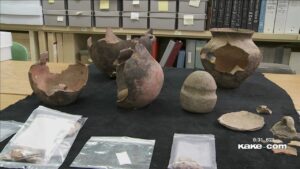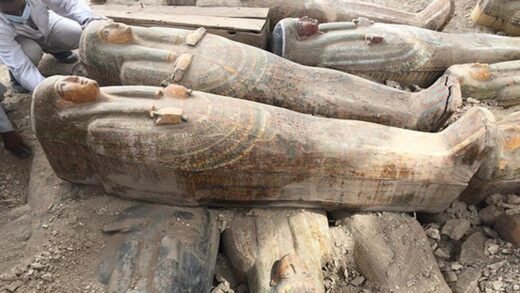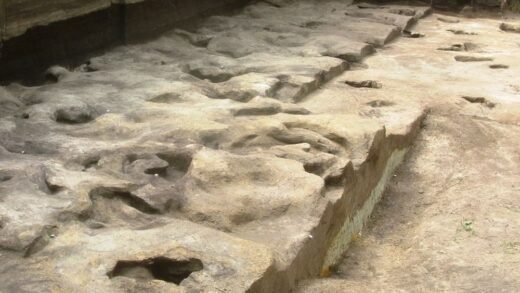
Date: May 16, 2023
In a groundbreaking archaeological discovery, historians and researchers have unearthed evidence of a remarkable Indigenous merchant empire that once thrived in what is now known as Kansas. This revelation is rewriting the narrative of early Native American civilizations and shedding light on a vibrant and sophisticated trade network that flourished centuries before European colonization.
Archaeological teams from the Kansas State Historical Society and several indigenous tribes have collaborated on an extensive excavation project, unearthing artifacts and examining ancient trading routes across the region. Their findings have brought to the forefront the existence of an Indigenous merchant empire that spanned vast distances and interconnected numerous tribes.
According to Dr. Sarah Martinez, lead archaeologist on the project, the discovery challenges the conventional understanding of pre-European settlement in the Americas. “Contrary to popular belief, Indigenous communities in Kansas and surrounding areas were not isolated entities but were actively engaged in complex trade networks,” she explains. “These networks fostered cultural exchange, economic prosperity, and social cohesion among various indigenous tribes.”
The evidence suggests that the Indigenous merchant empire thrived from approximately 800 to 1500 CE, with its influence reaching far beyond what is now Kansas. The trade routes extended from the Gulf of Mexico to the Great Lakes and from the Rocky Mountains to the Appalachian Mountains, making it a vast and extensive trading network.
Artifacts recovered from excavation sites provide invaluable insights into the economic practices of this indigenous empire. Sophisticated pottery, intricately crafted jewelry, rare minerals, and exotic animal remains have been discovered, showcasing the diverse array of goods that were traded. Additionally, the discovery of ceremonial objects and symbols of authority suggests a well-structured society with a rich cultural heritage.
The Indigenous merchant empire was characterized by a system of long-distance trade that fostered cooperation and interdependence among tribes. It facilitated the exchange of goods, technologies, and ideas, contributing to the development of complex societies and the flourishing of indigenous cultures.
This rediscovery is a pivotal moment for both indigenous communities and historians, as it challenges the prevailing Eurocentric perspective of early American history. Indigenous leaders and cultural activists are embracing this newfound knowledge, aiming to reclaim and celebrate their ancestral heritage.
Ella Whitefeather, an elder from the Shawnee tribe, shares her excitement, stating, “This discovery empowers us to reconnect with our roots and reclaim our history. It’s an opportunity to educate the world about the rich indigenous civilizations that existed long before the arrival of Europeans.”
As further research and analysis continue, the hope is to piece together a comprehensive understanding of the Indigenous merchant empire’s economic, political, and cultural significance. The collaborative efforts between indigenous communities, archaeologists, and historians promise to shed more light on this remarkable chapter in Kansas’ past.
The findings from this archaeological dig are not only rewriting the history books but also sparking conversations about the resilience and ingenuity of indigenous civilizations. As the story of the Indigenous merchant empire unfolds, it serves as a reminder of the deep-rooted heritage that has shaped the land we call Kansas, and the vital role indigenous cultures play in the tapestry of human history.



Hi, this is a comment.
To get started with moderating, editing, and deleting comments, please visit the Comments screen in the dashboard.
Commenter avatars come from Gravatar.